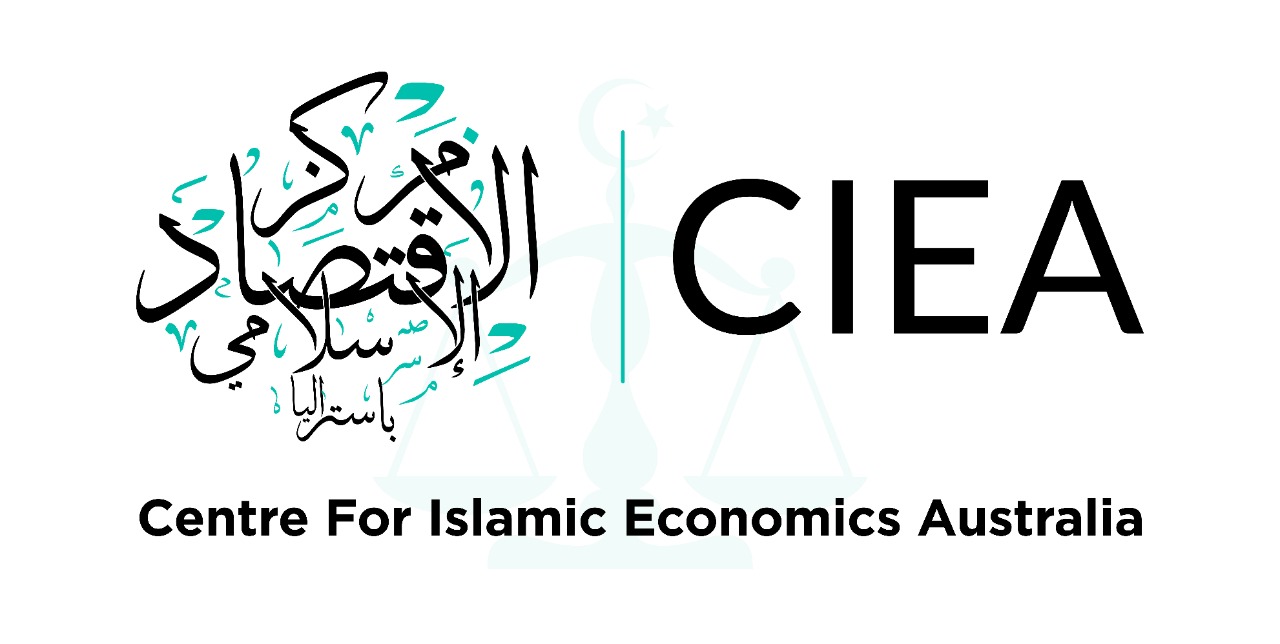SUPERFUNDS/SUPERANNUATIONS, PENSION, PROVIDENT & RETIRMENT ANNUITIES:
Zakatibility, Purification & Legitimacy in the Australian context. (Compulsory & Voluntary Super Funds)
The purpose of a superfund, provident fund, retirement annuity, preservation or similar funds – registered in terms of applicable legislation – is to provide annuities or lump sum payments for members (or former members) of the relevant fund upon their reaching retirement dates/age, or, for the dependents of such persons upon the death of those persons. A fund is an independent legal or juristic person, with the power to exercise its powers and perform its functions in terms of the rules and regulations regulated by the ATO [Australian Taxation Office]. The registered rules of the fund –inter alia – bind the members and the fund and, any person who claims under the rules. A member of the fund is legally entitled to the payment of a benefit only in accordance with the rules of the fund. All the underlying moneys and assets of the fund are owned by and vest in the fund as an independent legal entity. The affairs of the fund are managed by the board of trustees in accordance with the applicable laws, regulations and rules of the fund.
Against this very brief background, the following questions arise:
- How does one treat for zakah purposes the benefit that the employee/member of the fund is legally entitled to on termination of their membership/ by withdrawal or on retirement in accordance with the rules of the fund?
- How does one characterize such a legal right from a shari’ah perspective – bearing in mind that the assets of the fund are legally owned by the fund?
- And does the answer depend upon whether the employee/ member’s participation in the fund is compulsory or voluntary?
Compulsory-at-source deductions:
In Compulsory Participation – a binding invariable term of eligible employment, the monthly employee contribution is deducted from the member’s earnings at source and, paid over to a fund designated by the employer or by the employee.
The effect of this is that the employee has not become the owner of the deducted contribution thereafter transferred to the fund.
In the hanafi school, ownership is defined by possession thereof and control of the means of disposal. Prior to such possession, the employee only has a valid contractual claim for payment thereof.
Thus, the excess growth over and above the employee’s compulsory contributions paid out to them on retirement/ withdrawal is classified in shariah as part of benefit for past services rendered/or a gift – bearing in mind that the employee has a valid contractual claim to the same- and is therefore treated as halaal/permissible, irrespective of the source of accrual.
Zakah is accordingly only paid on the total amount when paid by the fund to the employee concerned in the year of receipt and not for prior preceding years – in the view of Imam Abu Hanifah (r.a.)i and some contemporary shaf’i fatwa committees. ii
However, it is preferable to pay for previous years after payout – in accordance with the views of Imams Abu Yusuf (r.a.) and Muhammad (r.a.) who state that zakah is payable on all categories of debts.iii This is also the classical view of the shaf’i school and is recommended for those who are able to pay without experiencing undue hardship – using the ‘compounded arrears method’.
Voluntary–at-Source Deductions:
The aforesaid principles should also apply to voluntary-at-source deductions i.e. deductions of contributions effected voluntarily by an employee at source in respect of his/her right to designate a fund of choice. The reason for this is that the employee’s consent on earnings or funds not yet owned by him/her cannot have any shari’ consequence.
However, as a cautionary note, in the voluntary situation since there is a degree of tashabbuh (resemblance) of riba/usury in the form of the consent on the part of the employee concerned with the monthly deduction from his or her remuneration, thus it would be cautious to dispose of the excess growth to a charity – unless of course the concerned employee’s contributions were invested in a Shariah Compliant Fund.
The above only applies to deductions-at-source funds effected by an employee in the context of a voluntary or compulsory participation in a fund.
Once the fund value or proceeds in question are transferred by The Fund via any avenue upon which the employee concerned has control of disposal then the funds are deemed to be in his/her shar’I possession for all intents and purposes – including the payment of zakah. In such a case, the employee will be responsible to ensure that the proceeds – if transferred to another fund are invested in a shari’ah compliant investment fund. Any impermissible receipts/growth in this situation will have to be purified/deducted.
وﷲ ﺗﻌﺎﻟﻰ أﻋﻠﻢ ﺑﺎﻟﺼﻮاب وھﻮ اﻟﻤﻮﻓﻖ واﻟﻤﻌﯿﻦ
i
اﻷﺟﺮة ﻻ ﺗﻤﻠﻚ ﺑﺎﻟﻌﻘﺪ ﺑﻞ ﺑﺎﻟﺘﻌﺠﯿﻞ او ﺑﺸﺮطﮭﺎ أو ﺑﺎﻻﺳﺘﯿﻔﺎء او ﺑﺎﻟﺘﻤﻜﻦ ﯾﻌﻨﻰ ﻻ ﯾﻤﻠﻚ اﻷﺟﺮة اﻻ ﺑﻮاﺣﺪ ﻣﻦ ھﺬه اﻷرﺑﻌﺔ واﻟﻤﺮاد اﻧﮫ ﻻ ﯾﺴﺘﺤﻘﮭﺎ اﻟﻤﺆﺟﺮ اﻻ ﺑﺬاﻟﻚ… ﻷﻧﮭﺎ ﻟﻮ ﻛﺎﻧﺖ دﯾﻨﺎ ﻻ ﯾﻘﺎل اﻧﮭ ﻣﻠﻜﮭﺎ اﻟﻤﺆﺟﺮ ﻗﺒﻞ ﻗﺒﻀﮭﺎ و ٕاذا i اﺳﺘﺤﻘﮭﺎ اﻟﻤﺆﺟﺮ ﻗﺒﻞ ﻗﺒﻀﮭﺎ ﻓﻠﮫ اﻟﻤﻄﺎﻟﺒﺔ ﺑﮭﺎ اﻟﺒﺤﺮ اﻟﺮاﺋﻖ :٣٤
ii
The MUIS Fatwa Committee (Singapore) have also adopted a similar verdict and cited “the community’s pressing needs for the monies” as their primary reason (see Administration of Muslim Law Act [Chapter 3, Section 32], concluded in their 6th meeting on 19th August, 2014). This verdict is notwithstanding the Fatwa Committee’s conclusion that the “monies is not considered to be a complete ownership (milk taam) of the member.” The International Islamic Fiqh Academy issued the same legal opinion that employee pension funds do not have the characteristic of being in the ‘complete ownership’ of the employee (see “اﻟﻤﺠﻤﺪة اﻷﻣﻮال زﻛﺎة ﺑﺸﺎٔن ﻗﺮار”, issued 14 April 2005). These contemporary legal verdicts regarding the lack of ‘complete ownership’ would render the contemporary Shafi’ee position to conclude that the zakah would only be due one year after receiving the monies. What is noteworthy to mention is that the MUIS Fatwa Committee’s conclusion also included a recommendation that “there is no prohibition for the individual from choosing to pay his zakat as soon as he receives the money in lump sum should he choose to do so, and if he is capable of doing so,” thus supports the position stated above as the view of Imam Abu Hanifah (r.a.).
iii
ﻗﺎل أﺑﻮ ﯾﻮﺳﻒ و ﻣﺤﻤﺪ: اﻟﺪﯾﻮن ﻛﻠﮭﺎ ﺳﻮاء و ﻛﻠﮭﺎ ﻗﻮﯾﺔ ﺗﺠﺐ اﻟﺰﻛﺎة ﻓﯿﮭﺎ ﻗﺒﻞ اﻟﻘﺒﺾ- اﻟﺒﺪاءع اﻟﺼﻨﺎﺋﻊ
![]() Prepared, adopted and adapted by Shaykh Shabir Moosa – in consultation with Shaykh Shoaib Omar – MS Omar & Associates Law Firm with input & reviewing from other ‘ulama and scholars.
Prepared, adopted and adapted by Shaykh Shabir Moosa – in consultation with Shaykh Shoaib Omar – MS Omar & Associates Law Firm with input & reviewing from other ‘ulama and scholars.
٦٢رﻣﻀﺎن ١٤٤١ 20/05/2020/



